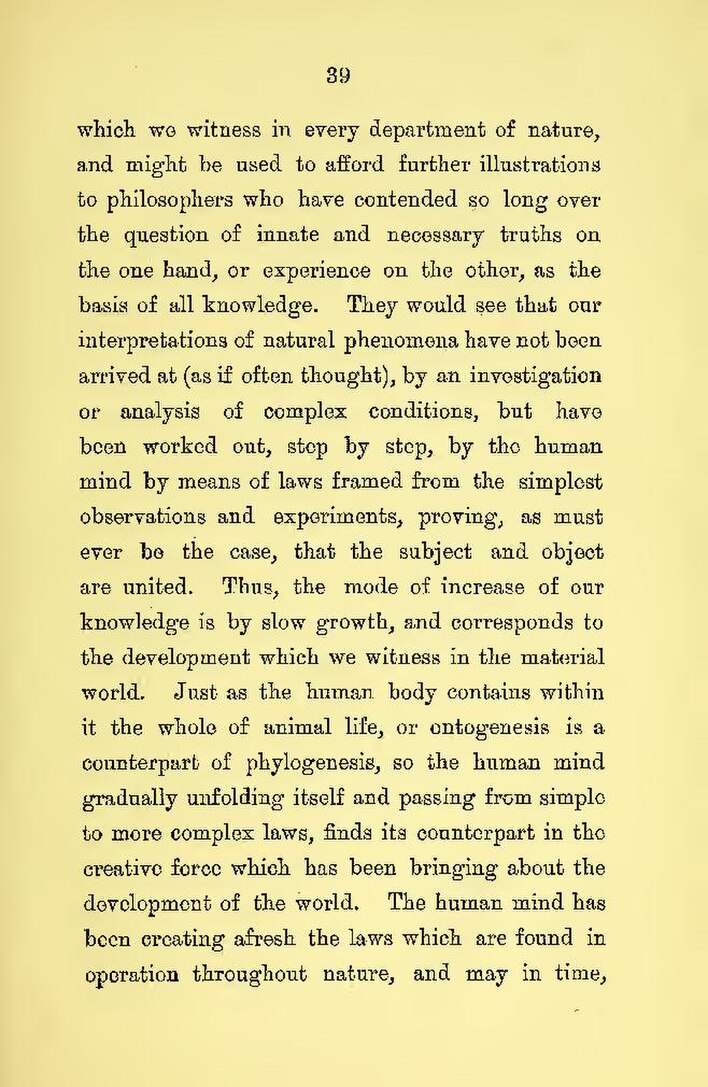which we witness in every department of nature, and might be used to afford further illustrations to philosophers who have contended so long over the question of innate and necessary truths on the one hand, or experience on the other, as the basis of all knowledge. They would see that our interpretations of natural phenomena have not been arrived at (as if often thought), by an investigation or analysis of complex conditions, but have been worked out, step by step, by the human mind by means of laws framed from the simplest observations and experiments, proving, as must ever be the case, that the subject and object are united. Thus, the mode of increase of our knowledge is by slow growth, and corresponds to the development which we witness in the material world. Just as the human body contains within it the whole of animal life, or ontogenesis is a counterpart of phylogenesis, so the human mind gradually unfolding itself and passing from simple to more complex laws, finds its counterpart in the creative force which has been bringing about the development of the world. The human mind has been creating afresh the laws which are found in operation throughout nature, and may in time,
Page:The Harveian oration ; delivered at the Royal College of Physicians, June 26th, 1879 (IA b24976465).pdf/43
This page needs to be proofread.
